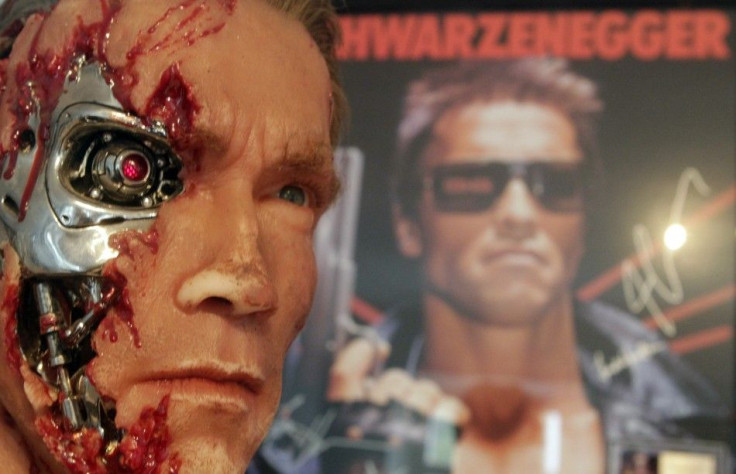Euro 2016: How Predicting The Winner Points To A Future Where Machines Make The Decisions

Ask any soccer fan who will win the Euro 2016 championship and every one of them will have an opinion fueled by a combination of patriotism, passion and hope. It’s safe to say none of their opinions will be based on the results of more than 36,000 soccer matches held over the past 146 years and an analysis of 94 billion outcomes.
That’s what researcher Michael Feindt, a particle physicist who worked at the European Organization for Nuclear Research (CERN) for six years, has done. At CERN, Feindt created an algorithm to predict collisons of particles inside the Large Hadron Collider close to Geneva. Now he’s chief scientific advisor at Blue Yonder, a startup looking to commercialize the technology within the retail sector, a process he describes as finding “the possibilities of probable futures.”
And he’s applying the technology to the UEFA European soccer championship. “Almost every [soccer fan] has a very strong opinion, but of course these opinions often are not so right, mainly because there is usually a strong home bias,” Feindt told International Business Times this week.
(Spoiler alert: Despite a sluggish start, science says the host France is still going to win.)
While applying a machine learning algorithm built to solve some of the world’s most complex problems to a soccer tournament may appear to be frivolous, it points to a future when machines will make more and more decisions for us. But rather than worrying about a robot revolution, Feindt says this is a good thing and will ultimately benefit all of mankind.
Feindt admits a personal bias for his home country of Germany but says it pleases him equally when his algorithm’s predictions have come to pass. So how has it been going so far? “It’s OK,” he says, adding that a few results — such as Wales’ victory over Slovakia and England’s draw with Russia — did not conform with his predictions. Having run the algorithm again after the first round of matches, however, he says it indicated France is still on course for ultimate victory.
Machine learning is the branch of computer science that allows computers to automate tasks that have been carried out by humans in the past. It was machine learning that allowed AlphaGo, the algorithm created by Google DeepMind, to first learn how to play the complex board game Go and then defeat the world’s best player this year.
In the case of Feindt’s Euro 2016 prediction, he employed the NeuroBayes algorithm he created at CERN to predict which of the 40 million particle collisions happening every second inside the Large Hadron Collider should be investigated. Feindt and his team at Blue Yonder fed more than 36,000 results of international soccer matches since 1870 into the algorithm to get his prediction.
Today, this type of machine learning algorithm is being used widely in business. For example, it can aid a retail store manager who has to keep track of thousands of items. The algorithm can be fed with all the previous data held on stock levels and learn to automate the ordering process, knowing when certain products are likely to be in high demand and the best time to buy them. This can take into account factors such as weather forecasts, public holidays and locations to give each store individual service.
Amid all this talk of artificial intelligence (AI) as embodied in machine learning, many may flash on Skynet, the insidious self-aware computer network in the “Terminator” film franchise. But before anybody retreats into a bunker 100 feet underground, Feindt points out that this is simply “an evolution and not a revolution,” building on what has already happened.

In the 1950s, there were vast halls at CERN crammed full of people employed simply to carry out calculations on the instructions of physicists and other researchers. Currently, all these jobs can be done on a single laptop computer — and possibly even on a single smartphone — and yet had you informed all those people their positions would one day be made redundant by a machine you could fit in your pocket, it would have caused a lot of panic.
Some of the fear surrounding AI comes down to confusion over the terms being used, specifically deep learning and machine learning. Deep learning is infinitely more complex than machine learning and is modeled on the human brain. “It can teach machines to ignore all but the important characteristics of a sound or image — a hierarchical view of the world that accounts for infinite variety,” Yann LeCun, Facebook’s director of AI research, tells the Wall Street Journal this week.
Deep learning is helping the advances in driverless cars, speech-recognition engines and medical-analysis systems that are sometimes better than expert radiologists at identifying tumors, but researchers are still just scratching the surface of what it can do. “Despite these astonishing advances, we are a long way from machines that are as intelligent as humans, or even rats” LeCun says. “So far, we’ve seen only 5 percent of what AI can do.”
Feindt says he believes that as the world advances, decisions humans make every day will be handled by machines, and that this is a good thing. He points to the automation of airplanes and the dramatic decrease in crashes that have resulted.
“More and more of this [machine] intelligence counts towards the overall intelligence of mankind and not of the single individual anymore,” Feindt says. “The single individual will come to rely on these automatic [decisions], I am quite convinced about that.”
© Copyright IBTimes 2024. All rights reserved.






















